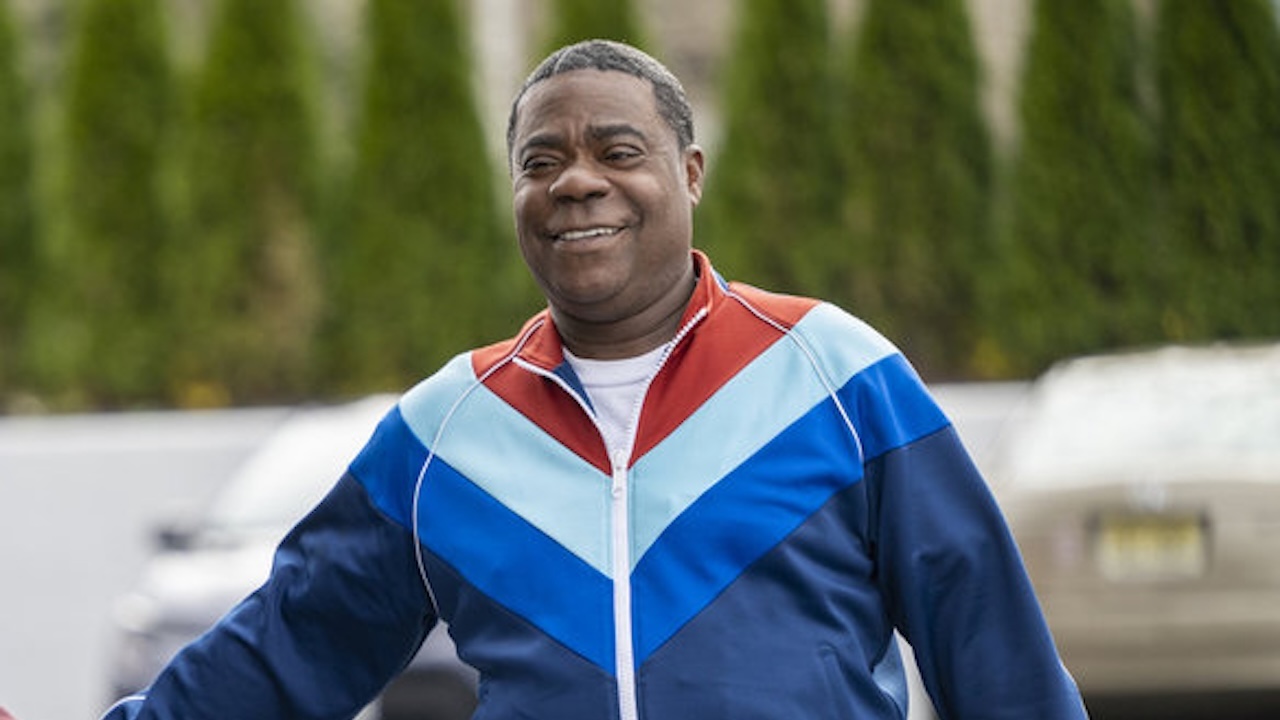5 Ways Do The Right Thing Is Still Relevant Today
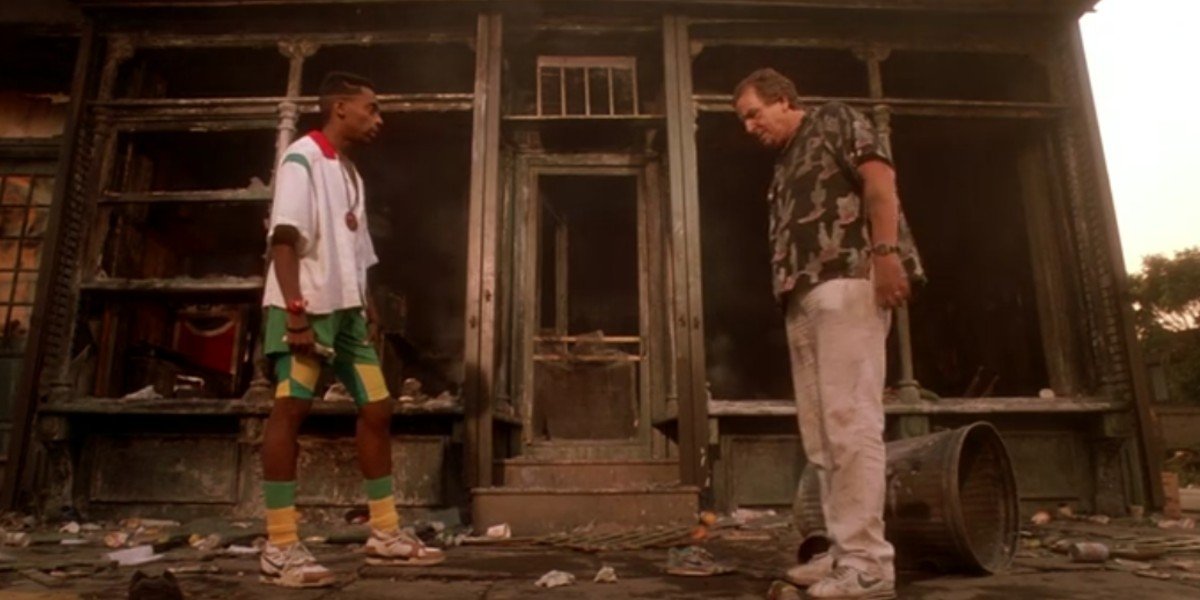
I can’t remember the first time I saw Spike Lee’s Do The Right Thing, but I now know that I was too young then to truly understand or feel the impact of it. I know this because I recently rewatched the movie and found myself shocked at how relevant and important the film is when it comes to topics of race, police brutality, and other things like climate change, ageism, gentrification, and a division among underrepresented groups. Do the Right Thing follows one hot day in the Brooklyn neighborhood of Bedford-Stuyvesant. Seemingly small incidents eventually boil over into an explosive confrontation.
Fans of Do the Right Thing know how impactful and socially relevant the film remains even in 2021, over 30 years after its 1989 release. For everyone else, you may need a reminder on a few reasons why Do the Right Thing is still relevant.
Warning: Do the Right Thing Spoilers Ahead.
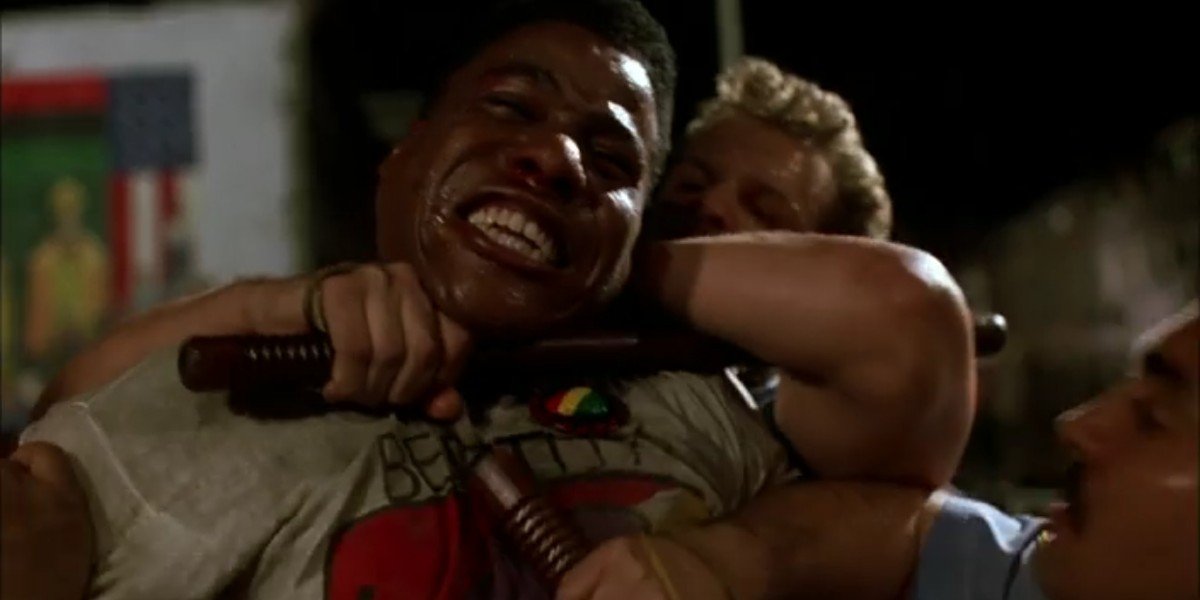
Do The Right Things Portrayal Of Police Brutality
The conclusion of Do the Right Thing involves Radio Raheem (Bill Nunn) being choked to death by a police officer. The confrontation happens after Pizzeria owner Sal (Danny Aiello) destroys Raheem’s boombox, and Raheem attacks Sal. The fight escalates into basically everyone in the pizzeria at the time-fighting everyone else. The cops are called (supposedly by one of Sal’s sons) and the police choke Raheem to death.
In 2020, Spike Lee released a short film called 3 Brothers. It showed parts of Radio Raheem’s death spliced with video footage of Eric Garner and George Floyd's deaths. The video is no longer on Spike Lee’s Twitter page, but you can see the full short film on his interview with Jimmy Fallon. It’s stunning, not only to see these three deaths (only one fictional death), but how similar the police brutality happens in these three instances.
Spike Lee wasn’t a psychic when he wrote Radio Raheem’s death, instead it was based on a real-life event. Lee has spoken in many interviews that Raheem’s death is based on the death of Michael Stewart. Stewart was a graffiti artist who was arrested by New York City Transit Police. The cause of his death was due to the NYC Police using a chokehold to detain him. Michael Stewart's death was the direct incident that inspired Radio Raheem’s death, but in the film and in the New Yorker, Lee mentioned several names of Black people, a majority of which died at the hands of the police, to whom he dedicated the film to. Their names were: Eleanor Bumpurs, Michael Griffith, Arthur Miller, Edmund Perry, and Yvonne Smallwood.
Sadly, Radio Raheem and the long list of real-life people who inspired his fictional death continue to grow at the hands of the police.
Your Daily Blend of Entertainment News
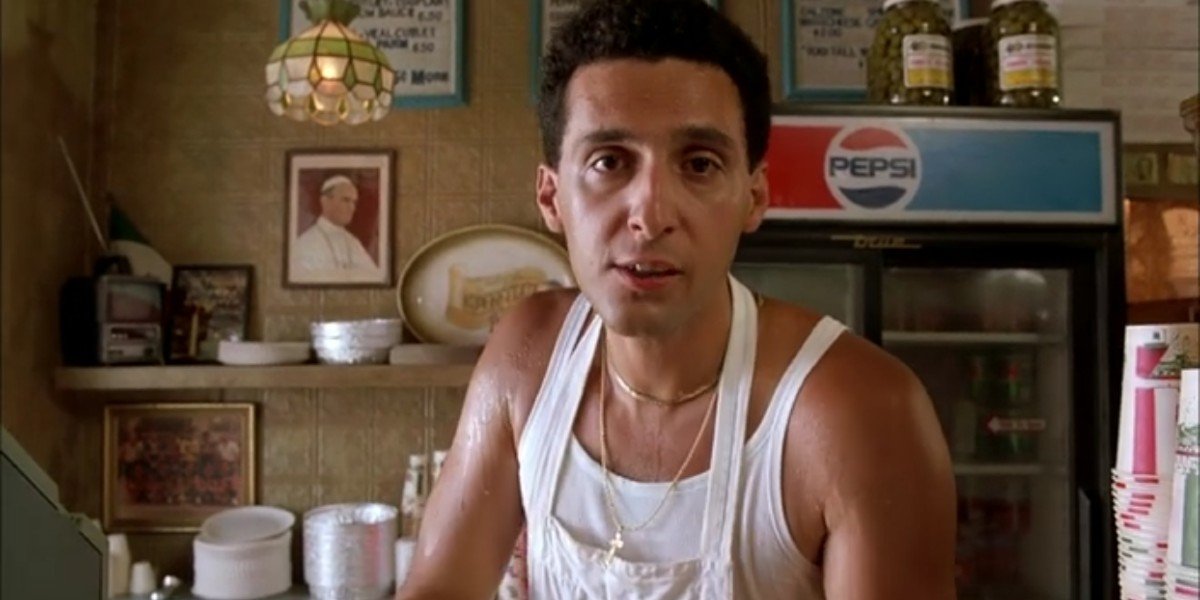
The Display Of Racial Tensions In Do The Right Thing
Racial tensions continue to grow all throughout Do the Right Thing, specifically between Italian Americans and African Americans, but also between all the racial groups represented in the film. There is one particular scene that shows the implicit biases and explicit biases by these characters and groups. After Mookie (Spike Lee) and Pino (John Turturro) discuss Pino’s disdain for Black people, but still being a fan of many Black legends like Magic Johnson and Prince, the scene cuts to Mookie, Pino, Officer Long (Rick Aiello), Stevie (Luis Antonio Ramos), and Sonny (Steve Park) breaking the fourth wall to express their racist and prejudice views of African Americans, Koreans, Italian Americans, Puerto Ricans, and Jewish Americans. It’s a very straight-to-the-gut punch with the insults thrown out.
Racial tensions still exist. We’ve seen that very clearly in the last few years, with things like the attacks on Asian Americans to different responses to the Black Lives Matter Movement. We also saw in Do The Right Thing how after tearing down Sal’s Pizzeria, attention turns to the Korean grocery store owner, but he gets them to stop by saying, “He’s black. He’s one of them.” This shows how sometimes minorities, instead of being united, turn on each other but it’s a waste of time because they’re not each other’s enemy. We still see a divide among minority groups in America.
Thirty-plus years later and racial tensions are still bubbling and exploding without any true resolution in sight.
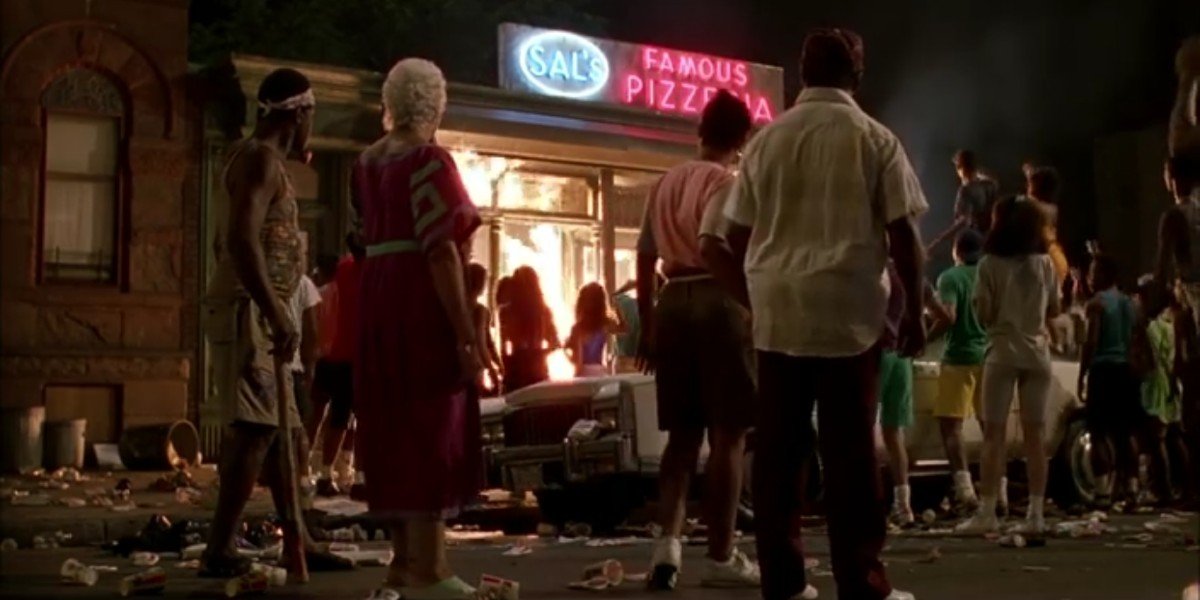
The Cause And Effects Of Riots In Do The Right Thing
In an interview at the Toronto International Film Festival, Spike Lee mentioned that some film critics (and people) were more upset about Sal’s Pizzeria being destroyed than they were about Radio Raheem’s death. Lee added that these people put more value on property than they do on Black bodies. He also showed this in the film with the final conversation between Sal and Mookie. Sal keeps talking about how his life work has been destroyed but Mookie keeps bringing up Radio Raheem’s death.
We hear this again when the radio host, Mister Señor Love Daddy (Samuel L. Jackson) talks about how the Mayor is coming to their neighborhood to investigate who destroyed some properties, but there is no indication that the Mayor will look into charging the police officers with Raheem’s death. We have seen this similar sentiment happen when peaceful protests or marches turn to rioting and looting, some people are more upset about the property damage than they are about the deaths that sparked the protests.
Lee has stated in multiple interviews, but specifically one in Film Comment, that Sal has valid points as do characters like Buggin Out (Giancarlo Esposito). Sal has a reason to be upset, this is his legacy being destroyed, but Mookie and his friends are just as justified in being upset about Radio Raheem’s murder. There isn’t a right or wrong way to react to these things. And that’s not what Lee is trying to do with Do the Right Thing. He’s showing different sides and letting the audience make of it what they will.
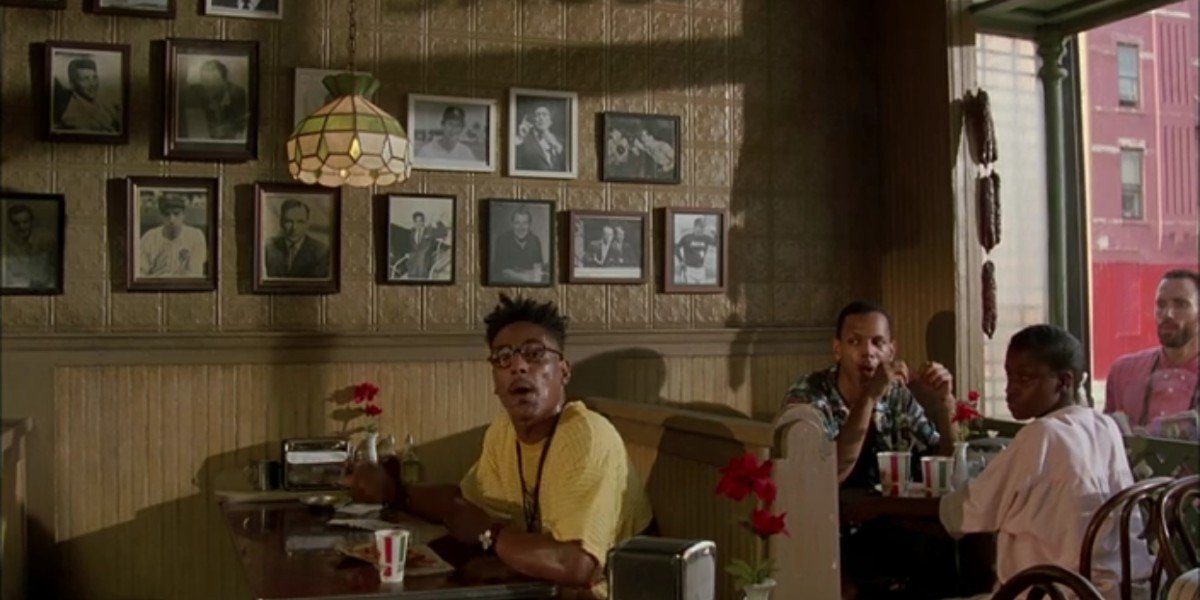
The Importance Of Representation In Do The Right Thing
The initial conflict of Do the Right Thing starts because Buggin Out believes Sal should have some Black people on his wall because most of his customers are Black, but Sal is Italian American, and this is his place, so he can put who he wants on it. Both Sal and Buggin Out are valid in their points and perspectives, but it’s the lack of feeling represented that sparks the flame.
Representation is still a major issue, not just in Hollywood, but in all fields. Some industries are making attempts to add diversity, but the progress has been slow and sometimes only done in a performative manner, instead of actual attempts to make representation and diversity a priority. Do the Right Thing only lightly glazes the topic but it still makes the lack of representation a focal point to the story.
If Sal was able to compromise and add a few Black figures, then at least some of the events of the film might have changed, but that small gesture would still not be enough to show real representation. Bigger strides would have needed to be made to show a real commitment to representation, like possibly more Black-owned businesses in the neighborhood.
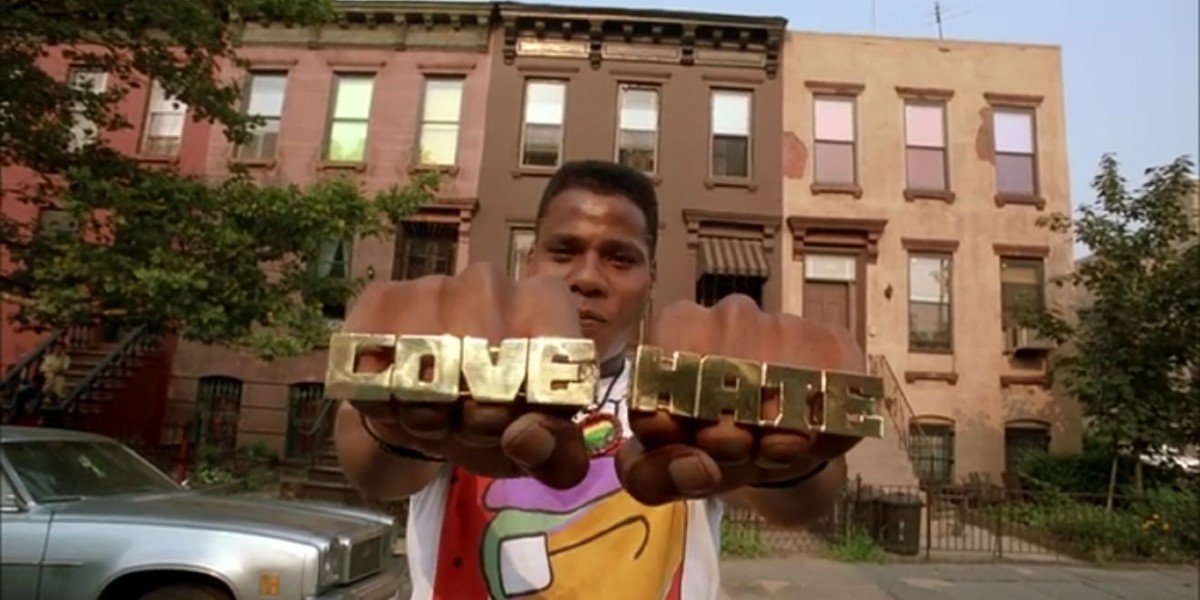
Politics And The Power Of Voting In Do The Right Thing
One of Do the Right Thing’s ending messages is that there is an upcoming election and to get out there and vote. Lee has often talked about the importance of voting. He clearly sends that message in Do The Right Thing with it being one of the last things the audience hears.
In every election, but seen most recently in the 2020 election, every vote matters and it can completely change the outcome of an election. It could also help some of the issues addressed in the film Do the Right Thing progress toward improvements.
Do the Right Thing is a powerful movie that many of the jokes, topics, and debates are still relevant today. Do the Right Thing is also a film that will spark different emotions in different people, which was Lee’s whole purpose. It isn’t a film that offers any real answers or satisfying conclusions, instead, it presents real situations and lets its audience define what they see as “the right thing.”
Do the Right Thing is available to stream on Showtime. Stream it here.

Spent most of my life in various parts of Illinois, including attending college in Evanston. I have been a life long lover of pop culture, especially television, turned that passion into writing about all things entertainment related. When I'm not writing about pop culture, I can be found channeling Gordon Ramsay by kicking people out the kitchen.
